I Want To Travel, But What If I Run Out of Money?
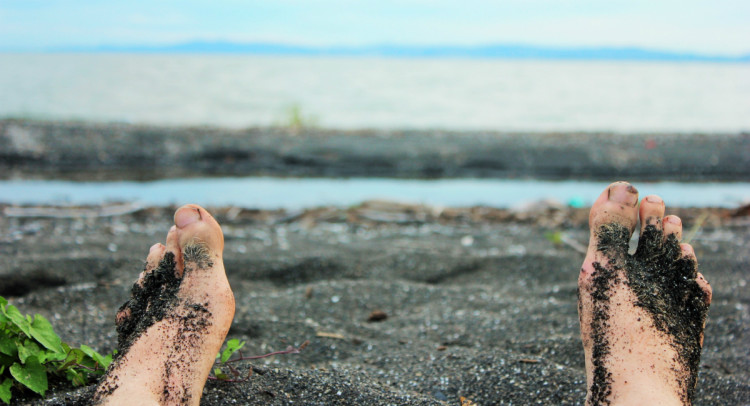
Reader Question: I’ve decided that I want to travel. I have zero attachment to material things, I’m a really simple person, calm, easy going and minimalist. The only thing that stops me from starting my trip is knowing that I won’t have any income and the only thing I fear is to put myself in a really bad situation, I want to prevent that.I’m thinking of what could happen if a run out of the money that I have managed to save (which isn’t much). The only thing that has occurred to me is to use Couchsurfing to find a place to stay and try to find a temporary job wherever I go. I also thought of doing WOOFing.My journey starts in January. I have a flight to France and that’s the place to start for me. I’m planning to travel around Europe. For now I can speak English, Spanish, a bit of Italian and I’m learning French!What would you suggest to me?
Firstly, it’s awesome that you want to travel, and I really admire people who have achieved multi-lingualism, that will definitely help you out on the road. Being easy going and minimalist will definitely make it less likely that you will run out of money on the road.
When it comes to worrying about running out of money, I have one golden rule: I always make sure that I have enough money to pay for my airfare back home just in case it all goes wrong. But, rarely does it all go wrong. If you’re able to stick to a budget and make sensible travel choices along the way, then you’ll be surprised how long you can travel for. Here are some of the essential must-dos to cut costs and get your money to stretch as far as possible. Don’t pay attention to them, and you’ll find that your money will be gone just like that.
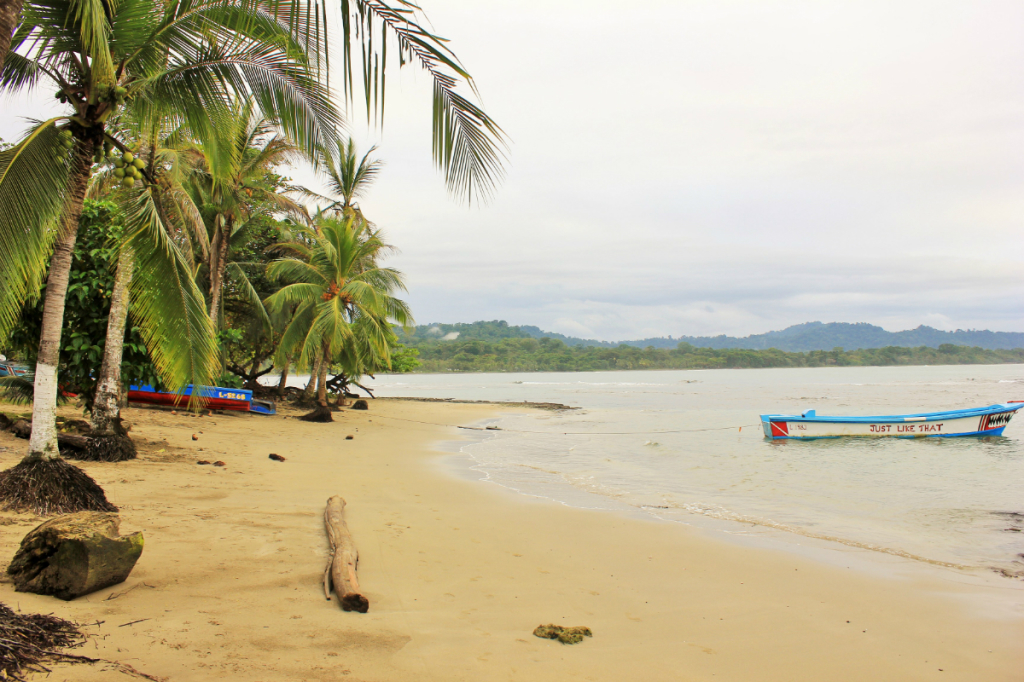
Money can run out, just like that.
Make a Travel Budget
It is so so important to know how much you can afford to spend on a daily basis. In a hostel in Nicaragua, we met a couple who had been saving for their travels for two or three years. After only three months travelling, they were close to having to return home. They blew $8000 in their first six weeks of travel in America. After that they realised they needed to budget, but it was already too late for them to travel as far as they had hoped. It’s an easy mistake to make, especially if you have money in the bank and you’re withdrawing on a debit card, rarely checking your bank statement.
Mine and Luke’s daily travel budget is £20/$32 each. We’re definitely budget travellers and actually we spend much less than that thanks to house sitting. When housesitting, our daily expenses can be as low as £3/$4.5 each – that’s not a joke! I keep a spreadsheet in which I detail everything we spend, from the cost of accommodation to a random almond snickers, so I know exactly what’s going out. When you’re travelling on a tight budget, even the little things makes a difference.
On a side note, I always travel with two debit cards in case of unforeseen circumstances. I wouldn’t want to be left completely penniless if an ATM swallowed my card, my bank blocked my account, or I lost my purse. Having two cards – one in your wallet and one in your hostel room locker – is a good back-up idea. In a real emergency and if you’re lucky enough to have parent or friends that will help you out financially, you could also head to a Western Union.
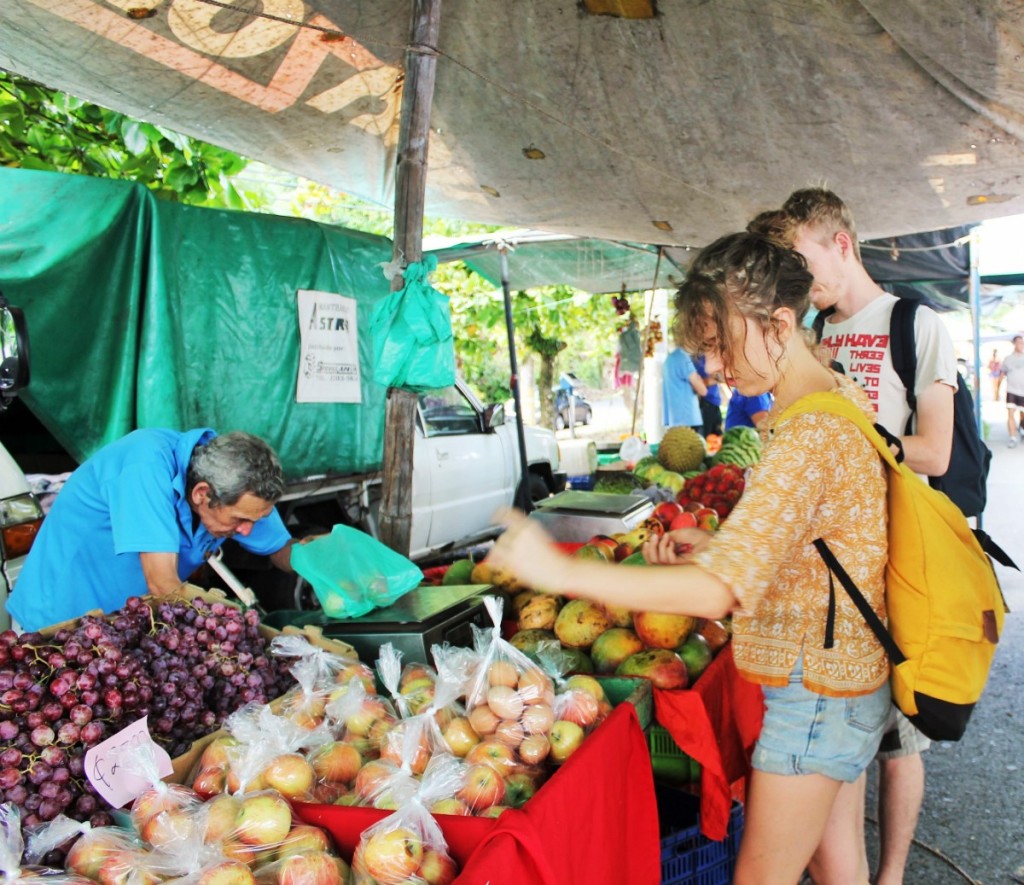
You can buy local produce for cheaper prices than the supermarkets in Costa Rica.
Choose Cheaper Countries
When deciding to go travelling, the countries which you choose to travel in can make a real difference to how far your budget will go. For instance, three days in Hong Kong cost us the same as a whole week in Vietnam. Europe is a notoriously expensive area of the world to travel and as such isn’t usually a first choice for long-term travellers.

I cannot stress enough how super awesome Poland was.
That said, there are cheaper areas in Europe, particularly in Eastern Europe. Poland is our favourite European destination; it’s an awesome country with so much variety and it’s cheap. For budget travellers, I would also recommend Estonia and Luke would give a shout out to Montenegro.
Unless you’re planning to rent a place temporarily or can find a Couchsurfing host, I would suggest spending shorter amounts of time in Western European countries to save money and opting for longer travels in Europe’s cheaper countries. There’s no real need to worry about the language barrier as many Europeans have great English, and Google can help you out with a couple of useful phrases too. When you are in more expensive countries, definitely try to cut costs by buying local food and cooking in hostel kitchens, heading to free museums and looking on car sharing websites like BlaBlaCar to find rides between cities.
Look for Cheaper Accommodation
As you said, Couchsurfing is an excellent option for cutting accommodation costs and also for meeting and making friends with local people. We’ve had some really incredible Couchsurfing hosts, especially in Poland. Couchsurfing isn’t always possible, but fortunately Europe also has plenty of really nice hostels where you can grab a dorm bed for not too much money. Sometimes there are even opportunities to work a couple of hours a day in a hostel in exchange for a bed.
I would also really recommend house sitting. If you don’t mind spending a few weeks in the same place and looking after a couple of cats, then this is a really excellent option. Unfortunately house sitting isn’t something you can jump into as quickly as Couchsurfing, but setting yourself up as a house sitter can really pay off in the long-term. I’ve written a guide to becoming a house sitter here.
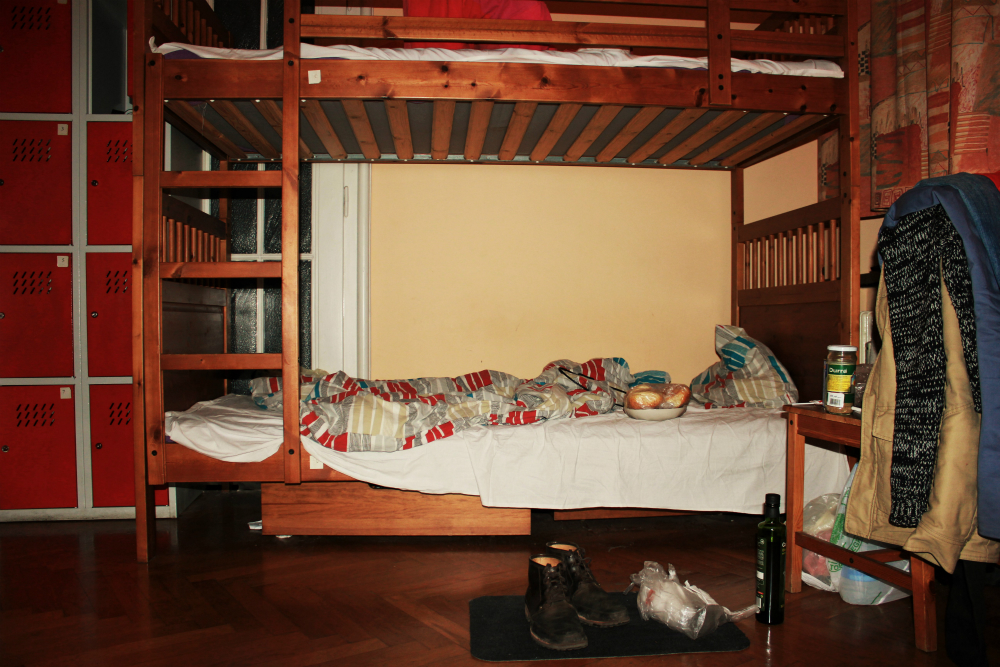
Typical hostel dorm room in Europe.
If Worst Comes to Worst…
If you’ve done your best with the above and it’s still all gone down the pan and you’ve run out of money completely, you should volunteer in exchange for bed and board to bide your time between finding employment.
Earlier in the year, Luke and I volunteered on the Angloville programme, which was awesome, and we had a week of free accommodation and meals. There are lots of volunteering options in Europe, and as someone who is multilingual you will probably be able to find a temporary position as an au-pair or nanny in exchange for bed and board if you need it. I’ve heard of a lot of travellers using websites like WorkAway for this, though those often come with a fee. Instead I would check local listings on Craigslist for openings.
When it comes to working, you’re also in a great position because of your language skills. Europe has a lot of language assistant programmes where you can earn and explore a new place, and you may also be able to find private tutoring work while on the road. Websites like italki can set you up with students to tutor via Skype, if that’s something that would suit you. Luke and I both found online work as writers through oDesk, though finding a job with a decent salary on the site took quite some time (if you’re total broke though, any money is good money!)
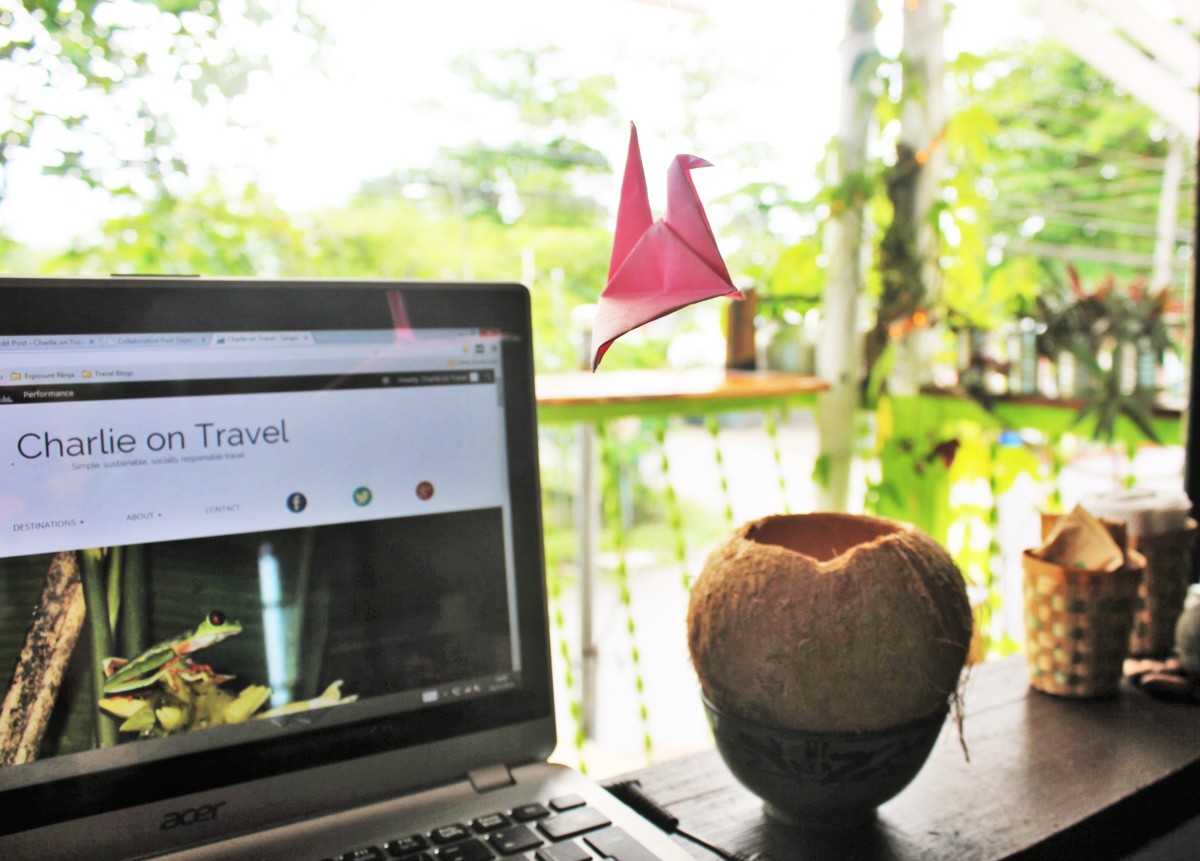
As well as volunteering, there are opportunities for working online too.
My very last piece of advice is just not to worry too much about running out of money. It’s easy to feel overwhelmed when you’re thinking about travel budgets and costs, but there’s a lot to be said for just going for it and learning (quickly) along the way. If you worry too much, you’ll end up not travelling at all. Keep it all in perspective, plan at least a few weeks in advance if you can and make smart decisions, and you’ll find that it’ll work out.
If you have any questions that you would like to have answered, I’d super love to hear them! You can comment below, send me an email, or message me on any of my social media.





Franca
Great tips! We’ve never been in the situation of being completely broke, not yet at least. As you said it’s very important to keep an eye on your daily budget to make sure your trip can last longer and you don’t end up being stuck somewhere without any money at all, not even to go back home.
Charlie on Travel
I never have either, and it’s something that I try not to worry about. When I left the UK earlier this year to travel long-term, I always had in my mind that if I couldn’t find work then I had enough money for 2-3 months and I would consider it an awesome holiday and go back to the drawing board in the UK. If I was able to stay on the road longer, then ever better! I really think the budget it super important for that – making sure you avoid any really bad situation! Thanks for your thoughts, Franca :)
venturists
Fantastic post! I’d also recommend using goodbudget.com to help keep you on track on the road.
Charlie on Travel
Thanks for the tip, Jen! I’ve not heard of goodbudget before, definitely going to check it out myself :)
Rose
Great tips! Yes, Europe is a difficult place when it comes to budget traveling, but like you said: there are some cheap countries. Montenegro is one of them for sure, but actually the entire Balkan area is a great place to travel around in ( which is mostly cheapest and easiest by bus!). The locals there are very hospitable, the food is great and cheap and you get to see some astonishing nature, if you want.
I haven’t heard of goodbudget before but I will definitely give that a try! Thanks!
Charlie on Travel
Hi Rose! Thanks for reading and commenting :) I’ve still not been to Montenegro but I’ve only heard awesome things, and would like to travel around the Balkans myself sometime too. It’s nice to hear that the locals are welcoming and that you can get good food on a budget!
Sam
Excellent advice! Zab and I certainly made some mistakes with these things when we first started out: we had a budget but it was kind of based on nothing realistic, so we were way overspending at first! £20 per day per person is a pretty impressively low budget, but I guess if you’re housesitting much of the time, that would be totally doable. Having enough to fly ‘home’ is always good advice, and I think it’s very worth keeping that at the forefront of any budget planning.
Charlie on Travel
Hey Sam – thanks for reading :) Yes, when we travelled to Vietnam (which was our first real trip together) our budget was based on totally nothing, having barely researched the places, let alone the price of a bed or a beer and so on – and it was a mess haha! But you learn quickly. Actually £20 per is our budget on the road (not including house sitting time). When we house sit we don’t budget because we’re always waaay under the £20 per day, but we keep extra that money as savings, we don’t average it with our days spent on the road. It is a tight budget though, and would probably be unrealistic for travelling in a lot of Europe and certainly in America. In Costa Rica it’s do-able though!
Sharon
Brilliant advice. Thank you once again for sharing.